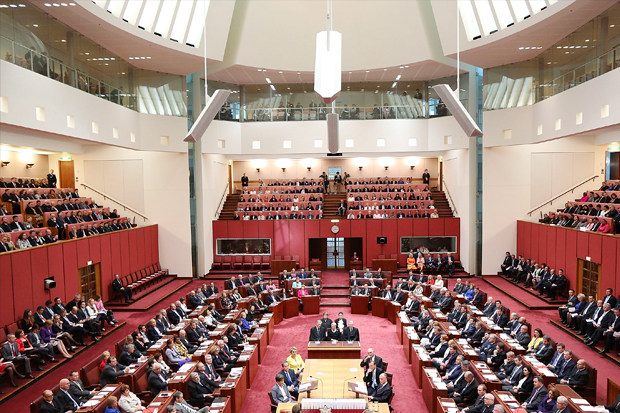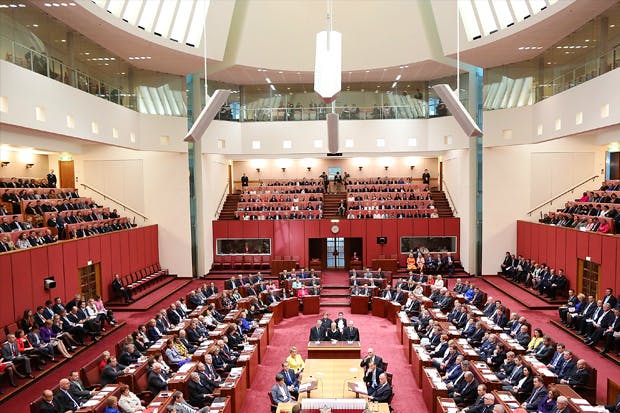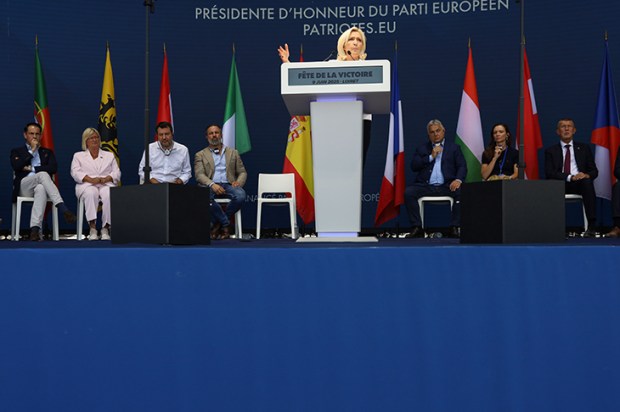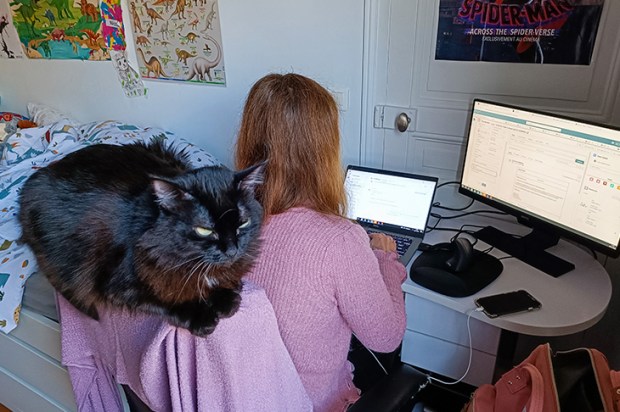Unintended consequences. It’s a phrase that once accompanied every serious public policy debate and was once the lifeblood of legal argument in this country. Anyone who has read the debates of the 1890s Constitutional Conventions will know that as our founders meticulously crafted the Australian constitution, the frequently asked question was: what are the unintended consequences? Not merely: what do we want to achieve, but what might we accidentally break or unravel along the way?
The mindset that accompanied those debates was fundamentally about the common good. People disagreed, often fiercely, on ideological grounds, but they shared a seriousness about the task of building something that would endure – and they shared a suspicion of grand experiments. Edmund Barton, Alfred Deakin, Samuel Griffith and George Reid were united by a deep commitment to avoid constitutional overreach, institutional imbalance or social division.
This habit of mind continued across the last century. In all of the great constitutional challenges and policy debates of the post-war era lawyers have been central to warning, refining and tempering the march of reform. Lawyers had a distinct role: not merely to advocate for or against a cause, but to test the architecture, to anticipate the unintended, to draft law that would not only pass through the parliament but actually work in the real world.
But today? The Australian legal profession has given up the ghost. On issues of great social import, where there should be furious debate, they are either silent or being silenced.
The phrase ‘unintended consequences’ rarely passes the lips of our most senior lawyers, judges or academics. Like many in the professional classes, lawyers have become cheerleaders for most fashionable progressive causes, abandoning the caution and prudence that once defined the discipline. Worse, they have become enforcers – shutting down dissenting voices inside and outside the profession.
Take the Voice to parliament referendum. The constitutional model promoted was radical and experimental. It was unprecedented in the Western world. It proposed embedding into the constitution an undefined, advisory arm of government giving the right to make representations across every area of government to a small group of people. In practical operation it had the potential to tear the country apart and make the problems it sought to resolve so much worse. Those of us who raised concerns – about constitutional incoherence, and yes, unintended consequences – were painted as bigots or fearmongers. The legal establishment, with few exceptions, lined up in enthusiastic support and castigated those who suggested there even be a debate.
Consider gender-affirming care. Across Europe today, we see a retreat from early medicalisation and a return to cautious, evidence-based care for children with gender dysphoria. Yet here, it was our courts that cleared the way for medical intervention without court approval even without parental consent where a child is assessed as competent. All of this is now unravelling due to the recent case of Re Devin, but where were the legal warnings about the limits on expert consensus and the rights of families at the time? Where was the reflection on myriad foreseeable adverse long-term physical and mental impacts? The profession then and now remains silent – even as the edifice of gender-affirming care for kids crumbles here and around the world.
Look, too, at the New South Wales Director of Public Prosecutions, where too many sexual cases have proceeded with no reasonable prospects of conviction. We must ask: have they been brought for educative reasons or maybe to signal a social stance? The criminal law has never existed – and never should it exist – for symbolic politics; it exists to protect society, with fair trials, clear standards, and evidence-based prosecution. Judges who complained have been reprimanded by the Judicial Commission –which was never intended to deal with these kinds of disputes. We know that poorly conceived prosecutions create human and other costs on an epic scale, yet in this ongoing dispute between the DPP and the judges the profession has stayed mum.
It is a privilege to be a lawyer; it is also a huge responsibility. The legal profession is replete with principled, clever, well-intentioned people. But mostly the ones we hear from in public discourse are from the dominant tribe.
Nor is this only an Australian problem. In the United States, just this month, the Wisconsin Bar Association was forced to drop its diversity programs after legal challenge, recognising the overreach of policies that were discriminatory.
In Australia, the profession is in worse shape because the intellectual and ideological ecosystem is less balanced and thinner. The conservative legal talent pool is small, diffuse, and more and more excluded from elite legal circles – and at the apex of the profession there is predominantly one large, unquestioned and unquestioning tribe. There is almost no ideological diversity in our best law schools. It is concerning that a profession that was once defined by caution and stewardship succumbs again and again to progressive authoritarianism.
Lost in all of this is something fundamental: the legal profession’s special responsibility in public life.
Lawyers have a unique place in society, not merely because they provide legal services, but because they are supposed to be stewards of form, process, balance and warning. Their job is not just to cheerlead causes but to ensure they stand up to institutional and philosophical scrutiny. When lawyers abandon that role, when they give up on the important work of anticipating, debating, and warning about unintended consequences, they leave society exposed.
The erosion of the legal profession’s public role should concern us. If lawyers cannot speak up on matters of institutional design, legal overreach, or social risk – if they cannot encourage dissent in their own ranks – how can they pretend to serve the public interest?
It’s way past time that the phrase ‘unintended consequences’ genuinely occupied the hearts and minds of Australian lawyers.
Got something to add? Join the discussion and comment below.
Louise Clegg is a former lawyer.
You might disagree with half of it, but you’ll enjoy reading all of it. Try your first month for free, then just $2 a week for the remainder of your first year.













